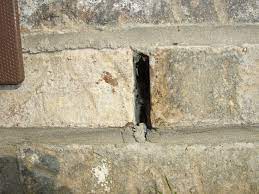Some residents have voiced frustration with their neighbours who refuse to open weep holes and clear drainages to prevent water pooling and flooding during the ongoing rainy season.
Recently, the City of Bulawayo issued a statement urging property owners to make sure that weep holes in boundary walls are open and functional to prevent flooding in compliance with Section 78(2) of the Water Act [Chapter 20:24], weep holes—strategically placed at the base of boundary walls—are mandatory for proper drainage.
The council has warned that failure to adhere to these requirements could result in penalties, fines, or legal action under the Roads Act [Chapter 13:18].
The local authority emphasised the importance of this measure, citing risks such as structural damage to boundary walls, health hazards from standing water and the increased likelihood of waterborne diseases.
However, some residents are concerned that neighbours do not take this advice or warning seriously.
Mavis Zitha, a resident, urged compliance along Airport Road in QueensPark suburb, where cultivation of drainage areas has led to severe flooding.
“Those who are cultivating along Airport Road, make sure you open the storm drain that comes from the flyover passing through Conway up to Frere Road. Some people’s houses were damaged by water because of that closed drain,” she said.
Another resident, Mrs Lingham shared her frustrations over the lack of cooperation in her neighbourhood.
“You plead with the residents, but they don’t seem to hear or care about our drains. It’s such a small portion that it could be done in a day. Please, let us try, residents. We had a very bad experience of the house and cottage being waterlogged,” she appealed.
Pilate, another resident, cautioned against cultivating on drainage areas.
“Please, let’s not cultivate on the drainages,” he warned while another local, Patricia Matina claimed having heard that the local authority would soon take action against violators.
“We heard council will be moving around with a grader to open drains, so those who have cultivated along the drains, you are not spared,” she said.
However, some residents expressed reservations about the initiative.
Mr Dubley criticised the measure, citing poor hygiene standards among neighbours.
“It may be a legal requirement, but some neighbours have too many lodgers, which is illegal and has led to a total breakdown of hygiene—loose diapers, smelly chicken droppings, and other dirt within their premises. I say no to this ill-thought idea, which was arrived at to protect a failed system. What I am doing is the opposite, to protect my property and family,” he argued.
Another resident reminded the city council to address its obligations regarding clearing of drainages.
“Council must also not forget to do their part in opening all drainage paths and blocked bridges,” he said.
Meanwhile, the city council has called for collaborative efforts among property owners to inspect and maintain open weep holes along shared walls, making sure neighbourhoods are prepared for increased rainfall.
Residents requiring assistance or further information are advised to contact the city’s Works Department – Roads Branch.
Contacted for comment, Ward 2 councillor, Rendani Moyo urged residents to adhere to council regulations regarding measures to prevent flooding, noting that flooding at households “came with a lot of financial inconveniences.”
“We have witnessed the onset of the rainy season and this has already shown us a glimpse of what to expect going forward. I would like to urge residents to play their part by making sure that their perimeter walls have ‘weep holes’ and that storm drains in front of their properties are in a good state,” Moyo said.
“Flooding comes with a lot of inconveniences financial and otherwise. Let us all play our part.”

